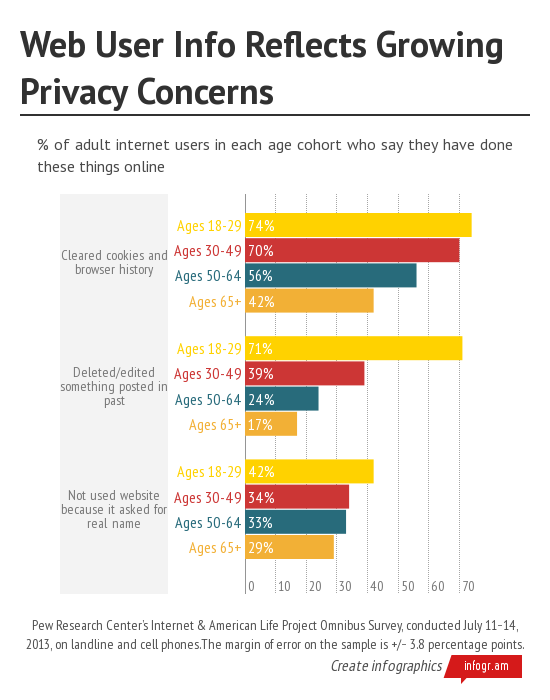No matter how you try to protect your privacy online, the fact you are online makes it impossible.
Whether you use email, social media, maps, or make purchases online, information about you — your likes, your habits, your aspirations — is being captured by companies for their profit.
“Free” services like Google and Facebook, collect user data in order to sell targeted advertising to you and your contacts.
Despite the Internet’s convenient appeal, privacy has become an increasingly relevant issue. According to the Pew Research Center’s Internet and American Life Project Ominibus Survey conducted July 11-14, 2013, 74 percent of people ages 18 to 29 tried to control the leak of personal information by clearing cookies (small messages between the server and the website, often storing information about Internet usage) and browser history regularly.
Young people like Chioma Nwachuku, 24, are among those who are driving this trend. A Northwestern University student studying communications, Nwachuku finds it natural to use Whatsapp “every five minutes.” Whatsapp is a mobile application that allows users to send text, video and photo messages to other users, including those overseas, for free.
“I’m always checking my phone,” Nwachuku said.
Checking your phone may be convenient, but it comes at a cost. The cost is cached searches, wireless providers notifying third parties of your whereabouts, and your overall interests being in public spheres.
Google and YouTube are invariably a part of our lives, but just because they’re free doesn’t mean you’re not contributing to employee salaries.

“There’s no such thing as a free lunch,” said Paul Rosenzweig, a privacy expert and founder of Red Branch Consulting PLLC, a homeland security consulting company.
“People of your generation are increasingly sensitive to privacy, so they’re growing more sensitive,” Rosenzweig said. “So, I think there’s more advocacy for privacy laws.”
Rosenzweig adds that although it’s convenient to shop online at stores like Amazon and Walmart, searches are saved, allowing marketers to track user interests. It’s a catch-22 because the best prices are often found online, but sharing information is inevitable.
“I think that lots of businesses want us to think this way, that privacy is something that must be sacrificed here and there for convenience,” said Rebecca Jeschke, a digital rights analyst at the Electronic Frontier Foundation. “We can and should demand more from products and services, and it’s possible to give us the cool tools we want while still protecting privacy.”
There are ways to limit the trail of cookies you leave on the Internet, such as special browser plug-ins or using disposable email addresses. But ultimately, the effort to remain anonymous convenience of using the Internet in the first place.
Plus, data trackers are now following us outside.
In Chicago, a new project called “Array of Things”, launched this month, included data-tracking poles on Michigan Avenue. The poles will track weather, traffic and people by using their cell phone’s signals.
Unlike the GPS feature on your phone, the city says the system won’t collect identifiable data. However, the ability to do so exists.
“There’s a proliferation of data sensors, and increasing ways of collecting data about people … you leave digital crumbs everywhere you go,” Rosenzweig said.
